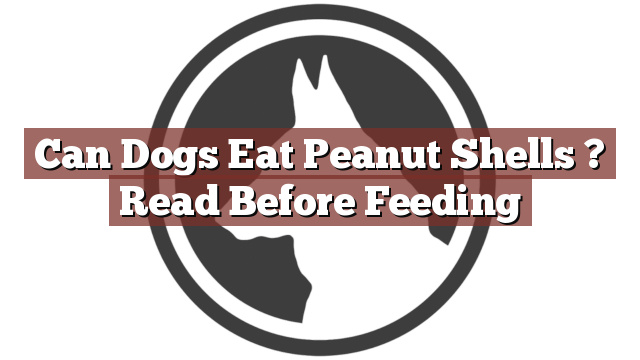Understanding Your Dog’s Dietary Needs
As a responsible pet owner, it is essential to understand your dog’s dietary needs to ensure their overall health and well-being. While dogs are primarily carnivores, they can also consume certain fruits, vegetables, and grains in moderation. However, it is crucial to be aware of what foods are safe and healthy for your furry friend. This article will specifically address the question, "Can dogs eat peanut shells?" and provide you with important information to consider before feeding them to your dog.
Can Dogs Eat Peanut Shells? Read Before Feeding
Can dogs eat peanut shells? No, it is not recommended to feed peanut shells to dogs. Although the shells themselves are not toxic, they can be challenging for dogs to digest and may cause gastrointestinal issues. Peanut shells are tough, fibrous, and can potentially cause blockages in the digestive system, leading to discomfort or even more severe health complications.
Pros and Cons of Feeding Peanut Shells to Dogs
While peanut shells are not toxic, it is important to weigh the pros and cons before considering feeding them to your dog. On the positive side, peanut shells can provide some natural fiber, which aids in digestion and helps maintain regular bowel movements. However, the potential risks outweigh these benefits. Dogs that consume peanut shells may experience vomiting, diarrhea, or constipation due to the difficulty in breaking down these tough shells.
It is also worth noting that salted or flavored peanut shells should be avoided altogether. High salt content can lead to sodium toxicity, which can be dangerous for dogs. Furthermore, flavored shells may contain additional ingredients that could be harmful to your pet.
In Conclusion: Consider Alternatives to Feeding Peanut Shells to Your Dog
In conclusion, while peanut shells are not toxic to dogs, it is not advisable to feed them to your furry companion. The potential risks associated with digestive issues outweigh any potential benefits. If you are looking for natural fiber sources for your dog, there are safer alternatives available. Consider incorporating vegetables like pumpkin, sweet potatoes, or green beans into their diet, as these options are more easily digestible and provide valuable nutrients.
Always consult with your veterinarian before introducing any new food into your dog’s diet. They can provide personalized advice based on your dog’s specific needs and help you make informed decisions to keep your pet healthy and happy. Remember, your dog’s well-being should always be a top priority, and feeding them appropriate and safe foods is an essential aspect of responsible pet ownership.
Thank you for taking the time to read through our exploration of [page_title]. As every dog lover knows, our furry friends have unique dietary needs and responses, often varying from one canine to another. This is why it's paramount to approach any changes in their diet with caution and knowledge.
Before introducing any new treats or making alterations to your dog's diet based on our insights, it's crucial to consult with a veterinarian about [page_title]. Their expertise ensures that the choices you make are well-suited to your particular pet's health and well-being.
Even seemingly harmless foods can sometimes lead to allergic reactions or digestive issues, which is why monitoring your dog after introducing any new food item is essential.
The content provided here on [page_title] is crafted with care, thorough research, and a genuine love for dogs. Nevertheless, it serves as a general guideline and should not be considered a substitute for professional veterinary advice.
Always prioritize the expert insights of your veterinarian, and remember that the health and happiness of your furry companion come first.
May your journey with your pet continue to be filled with joy, love, and safe culinary adventures. Happy reading, and even happier snacking for your canine friend!

